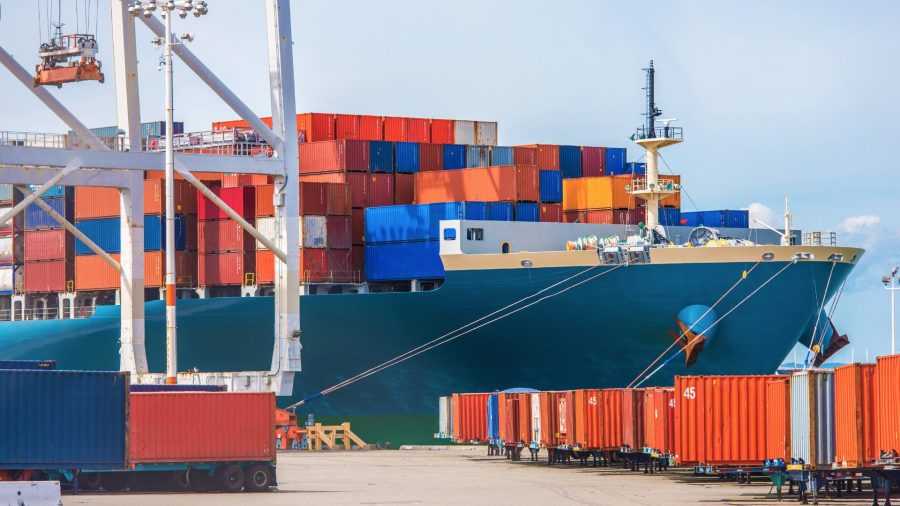The Federal Reserve reported that supply chain disruptions and labor shortages plagued many parts of the country in November, leading to rising prices across most of the nation, reported The Associated Press (Dec. 1).
With that, the U.S. government is taking a more hands-on approach to finding solutions.
Biden Hosts Summit
On Nov. 29, President Biden hosted CEOs from major retailers and grocers, including CVS Health, Walmart, and Food Lion, to discuss the holiday shipping season. The effort was part of a larger drive by the White House to emphasize the strength of U.S. supply chains amid growing concerns, reported CNBC (Nov. 29).
In the meeting, Biden asked participants to discuss ways they could work with the federal government and to share strategies companies have employed to overcome supply chain issue while keeping workers safe.
There were some signs of improvement. Walmart CEO Doug McMillon reportedly noted throughput at the nation’s ports were improving. He said Walmart saw a 26% increase in throughput at ports nationwide in the past four weeks. For the troubled ports of Los Angeles and Long Beach, he reported a 51% increased flow.
FTC Launches Inquiry
The FTC launched an inquiry into nine large retailers, wholesalers, and consumer good suppliers to get a better grasp of the supply chain issues grappling the economy. Specifically, the agency was looking to determine how these disruptions were causing ongoing hardships for consumers and harming competition in the industry.
The action was issued without a specific law enforcement purpose, and was sent to Amazon, Associated Wholesale Grocers, C&S Wholesale Grocers, Kraft Heinz Co., Kroger Co., McLane Co., Procter & Gamble Co., Tyson Foods Inc., and Walmart Inc. The agency also solicited voluntary comments from other retailers, suppliers, wholesalers, and consumers regarding supply chain disruptions.
“The FTC has a long history of pursuing market studies to deepen our understanding of economic conditions and business conduct, and we should continue to make nimble and timely use of these information-gathering tools and authorities,” said Chair Lina M. Khan in a press release.
Database Legislation Introduced
Regulatory actions aren’t the only efforts being considered. The National Manufacturing Extension Partnership Supply Chain Database Act was introduced by U.S. lawmakers Dec. 1.
The bipartisan legislation, sponsored by Sen. Bob Menendez, Sen. Marsha Blackburn, Rep. Norma Torres, and Rep. Chuck Fleischmann, is designed to prevent future supply chain disruptions by creating a database that would give manufacturers data to retool and meet demand for key products in times of crisis, including food, defense supplies, and medical devices.
“The COVID-19 pandemic exposed deep vulnerabilities in our own national supply chains that we are still dealing with as a country and that make us susceptible during moments of crisis,” said Menendez in a press release announcing the legislation.












